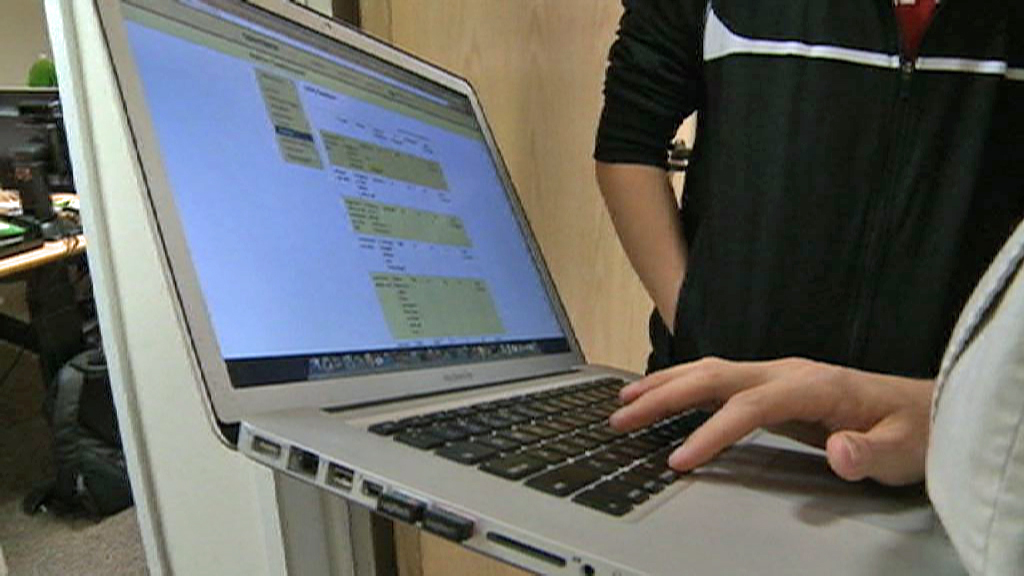Swiss universities try to catch the MOOC wave

Free interactive online university courses known as MOOCs (Massive Open Online Courses) are quickly spreading far beyond the United States. After Lausanne’s Federal Institute of Technology (EPFL), other Swiss universities are keen to experiment.
But not everyone is convinced: some sceptics say MOOCs are not particularly innovative and just a new marketing opportunity.
Last year witnessed an e-learning explosion as MOOC madness took over higher education. Eager not to miss out on this new trend, top universities from around the world are joining platform providers such as Coursera and Udacity, or forming their own ventures like edX and Futurelearn, while individual initiatives are also being spawned.
EPFL is an early MOOC adopter. It became one of Coursera’s 33 university partners last June offering a course in Scala computer programming to which 53,000 students signed up, five times the number on campus.
EPFL President Patrick Aebischer describes MOOCs as a potential “tsunami” for higher education and his colleague Karl Aberer, who oversees the courses at EPFL, agrees: “I’m pretty sure they will result in fundamental changes. There is already talk about no longer needing large lecture halls on campus.”
The Lausanne-based institute is forging ahead. Another Scala course is programmed in spring alongside new courses in English on digital signal processing, computational mathematics, Java computer programming, and scientific computing in French. EPFL plans to introduce ten more courses by autumn 2013.

More
Elite universities at the click of a mouse
Get on board
Other Swiss universities are also looking to take the plunge. Zurich’s Federal Institute of Technology (ETHZ) will possibly start a MOOC in autumn this year on an undisclosed topic. But it plans a more careful approach and has set a two-year time-frame to assess the new trend.
MOOCs epitomize current developments in the higher education world – internationalization, a regrouping of small elite universities and a desire to reach a new public – said Pablo Achard, deputy rector at Geneva University.
The university is also preparing a course with either Coursera or edX and is likely to make a formal announcement within the next month.
“There is definitely a huge wave of interest around MOOCs, especially in the US, but it’s too early to know whether they represent a passing fad or a more profound change for higher education,” Achard added.
Elsewhere, Bern University said it was considering MOOCs as a way of improving teaching but they were not a priority. Zurich, Basel and Lausanne universities have not expressed an interest.
Lausanne is pursuing other channels. Since 2009 it has been a partner of iTunes U, the Apple online platform, which boasts thousands of courses offered by hundreds of colleges, universities and high schools, such as Yale, MIT and Berkeley.
MOOCs (Massive Open Online Courses) have been around on a small scale for a few years but really took off in 2012 when Stanford start-ups Udacity and Coursera were launched, followed by edX. Futurelearn, a consortium of British providers led by Open University, was launched in December.
In August 2012, four months after Coursera offered its first free online college courses, it had pulled in one million users from over 190 countries. Enrolment currently stands at over 2.5 million, with students signing up for 215 courses taught by academics from Coursera’s 33 elite partner universities. Udacity has attracted about one million students.
Usually free and credit-less, MOOCs offer university learning in the digital world combining high-quality lectures and social networking alongside fun aspects like interactive quizzes and games.
Students can learn at their own pace via short videos and exchange with a huge online community. Some courses have homework and a final exam.
Not that innovative
But not everyone is as enthusiastic as Aebischer. For some MOOCs are little more than a marketing opportunity.
Konrad Osterwalder, head of teaching development and technology at ETHZ, said there was nothing particularly innovative about current MOOCs, adding that ten-year-old well-made e-learning products were generally better quality.
“Moocs is just a format that needs to be filled and you can do that well or badly. With much of what I’ve seen it’s easier to be critical than find pearls,” he commented.
But he felt the community aspect – especially peer-to-peer learning – and large amounts of new data from greater numbers of participants were particularly interesting developments.
Motivations
For many universities the motivation to explore MOOCs stems from economic factors and pressure to improve productivity.
Aberer says MOOCs should offer insights onto new teaching methods and access to thousands of participants will open up new avenues for research and data analysis.
But EPFL has wider ambitions. Aebischer is taking a six-month sabbatical this year to focus on MOOCs and will be travelling to Boston, San Francisco and to Africa to assess potential.
He believes the new form of online lectures offer a unique opportunity for the development of higher education on the continent.
In an interview with Le Temps newspaper, he said the French-speaking university had a certain responsibility towards the 220 million people who speak French around the world, expected to rise to 750 million in 2050, most of whom live in Africa.
University e-learning courses are not new. Britain’s Open University started offering distance-learning programmes in the 1970s. US and European universities have been posting lectures on the internet for over ten years.
Swiss universities tested the waters between 1999-2008 with the Swiss Virtual Campus, a SFr75 million initiative to introduce and encourage the adoption of new technologies and e-learning in higher education.
In line with its objectives, the Swiss-wide platform was phased out as individual universities took over the responsibility of their own e-learning programmes.
Revenues and certificates
The current platforms have generated millions in venture capital but questions remain over the ideal business model to allow universities to pay the bills, whether it is through licences, certification fees or offering recruitment data to employers, or other methods.
In Switzerland, where the set-up and tuition fees are very different from US colleges, expectations are different.
“For us it’s not about generating huge revenues. In the academic world a lot is based on visibility. If you get that you get good students which increases the quality and then you get more sponsors. It’s all self-reinforcing,” said Aberer.
Another issue to be tackled is providing proper qualifications for MOOC courses. The vast majority of courses have not been accredited but there are moves in that direction, particularly in the US. Aberer said future options could include designated test centres, online exams with monitoring or universities organizing exams.
Osterwalder: “It’s clear that if we publish an open course we won’t accredit it. You need to enrol at ETHZ to formally benefit from a MOOC. Yet I believe this is going to change and I am pretty sure that discussions will go further. The accreditation question will continue as platforms develop. At some stage ETHZ will have to face this. At the moment it’s a tricky discussion and most universities don’t want to tackle it seriously.”

In compliance with the JTI standards
More: SWI swissinfo.ch certified by the Journalism Trust Initiative









You can find an overview of ongoing debates with our journalists here . Please join us!
If you want to start a conversation about a topic raised in this article or want to report factual errors, email us at english@swissinfo.ch.